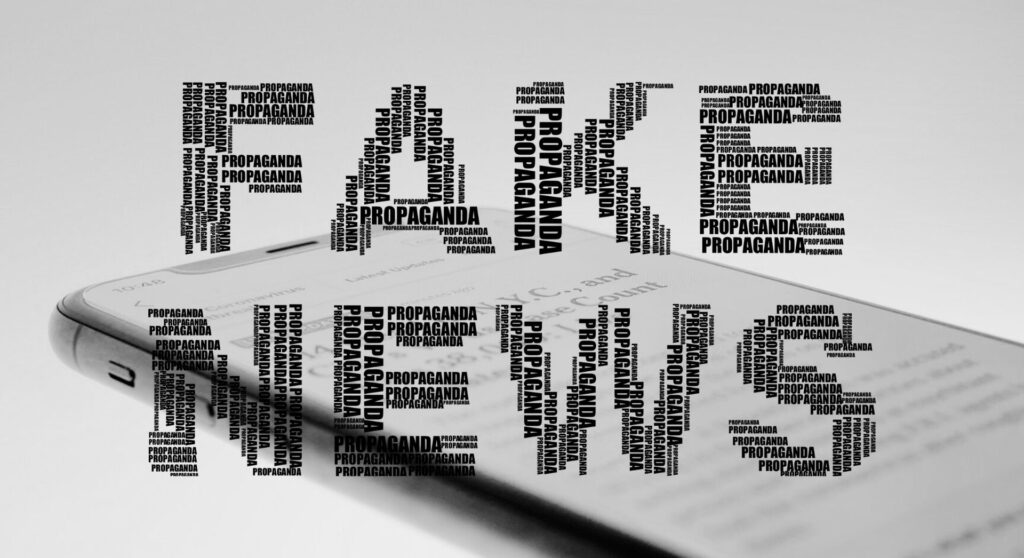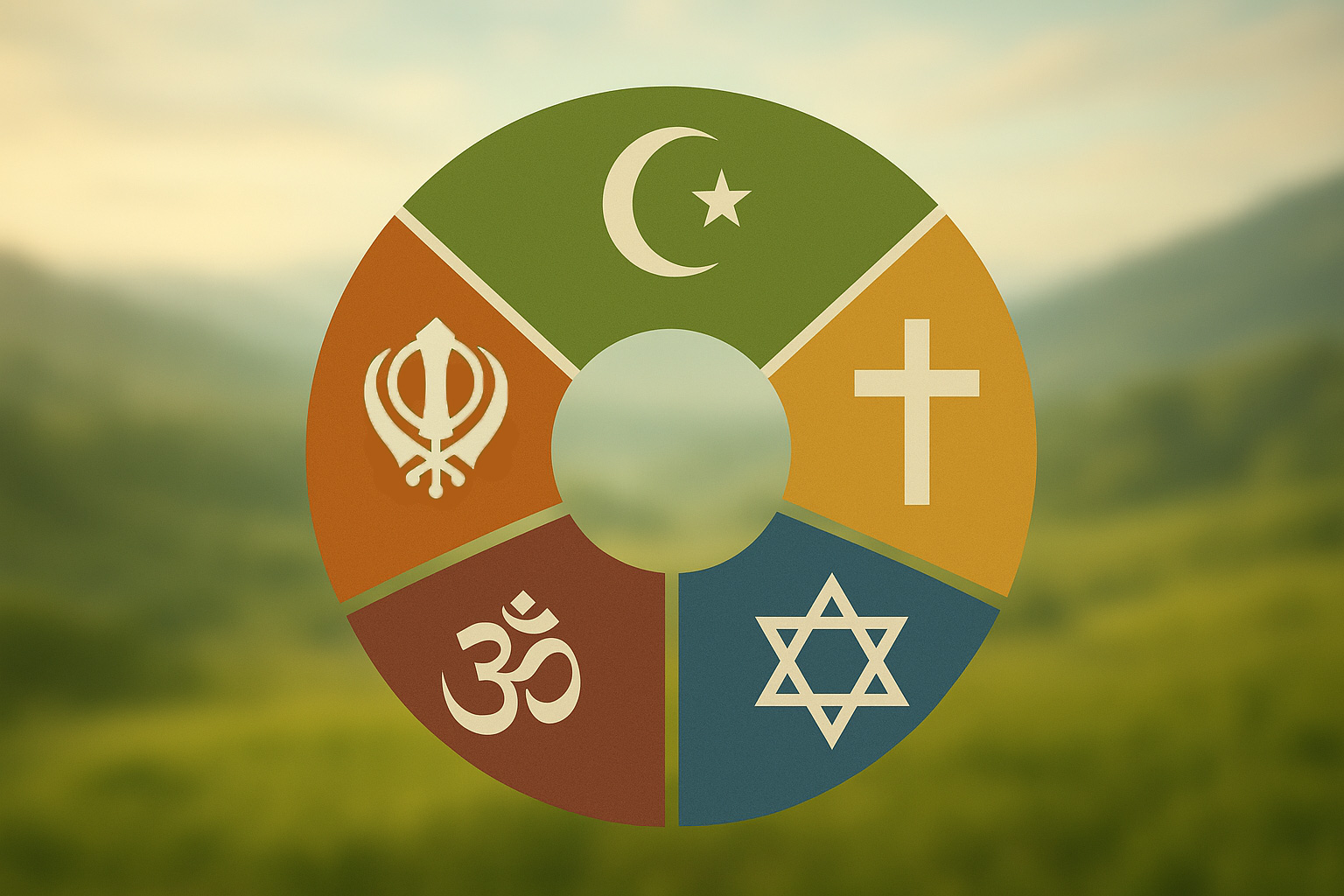A THARIQ, PALAKKAD
It is true what they say:
“Falsehood flies, and the truth comes limping after it.”[1]
In today’s digital age, we are constantly bombarded with information through social media and various news platforms. Much of this content is presented without proper background or fact-checking, making it difficult to separate truth from falsehood. As false narratives spread rapidly, the need for critical thinking and verification has never been more crucial.
Islam provides a comprehensive framework for analysing information, offering clear methodologies to discern truth from falsehood. The Holy Quran says:
“O ye who believe! if an unrighteous person brings you any news, ascertain [the correctness of the report] fully, lest you harm a people in ignorance, and then become repentant for what you have done.”[2]
This verse emphasises the importance of verifying information before acting upon it. Although the verse is broad in its scope for the profound significance of the lesson it imparts, the fact that it specifically addresses believers implies that verifying information before passing it on constitutes an essential characteristic of a true believer.
Furthermore, the Holy Prophetsa has strictly cautioned against spreading information blindly without verification. Hence, he is reported to have said:
“It is enough for a man to prove himself a liar that he goes on narrating whatever he hears.”[3]
Thus, Muslims are particularly commanded by God to assess the accuracy of any news they receive so as to prevent unjust harm and avoid future regret.
Dajjal and the age of disinformation
Dajjal, or the Antichrist, is prophesied to appear in the latter days, as foretold by the Holy Foundersa of Islam.[4] Along with this, it was also predicted that those times would be marked by widespread evil, deception, and falsehood—something that closely resembles the state of the world today.
Elaborating on the concept of Dajjal, the Promised Messiahas states:
“Let it be clear that the word dajjal has been interpreted in two ways: First is that dajjal signifies a group which supports falsehood and works with cunning and deceit. Second is that dajjal is the name of Satan, who is the father of all falsehood and corruption.”[5]
Thus, the widespread disinformation in today’s world can be seen as a manifestation of Dajjal’s influence. This era is increasingly characterised by disinformation and fake news, where falsehood is often used as tools to sway public opinion and suppress unwarranted and unpopular viewpoints. This underscores the relevance of the Quranic teaching of fact-checking, making it more important than ever.
Falsehood as a tactic against Islam
Truth shines brightly on its own, and the best way to defy truth is to spread falsehood. This same tactic of disinformation is employed by opponents of Islam to tarnish its image. Hence, they spread falsehoods about the Holy Prophetsa, attempting to distort his character. From falsely claiming that he waged wars to spread religion to alleging that he, God forbid, died a cursed death, their fabrications know no bounds. With the rise of social media, these anti-Islamic narratives have become even more rampant, further distorting the truth.
Another aspect of this anti-Islamic campaign is undertaken, surprisingly, by Muslims themselves when they use the same strategy against Islam Ahmadiyyat. Leaving aside the fact that Ahmadiyyat represents the true and pristine teachings of Islam, the use of outright falsehoods against Ahmadiyyat itself reveals that these opponents are not on the truth, as truth never requires falsehood to substantiate it.
Among the many fabrications they spread are claims that Ahmadis pray only three times a day, that they perform Hajj in Qadian, or that its Founder, God forbid, died an accursed death—all of which are utterly baseless and have absolutely no connection to truth whatsoever.
These tactics are designed to discourage people from even learning about Ahmadiyyat, let alone accepting it.
Thus, as the followers of the true Islam, we Ahmadi Muslims have a greater responsibility to combat misinformation and spread the true image of Islam to the world.
The rise of artificial intelligence and deepfakes
Another significant threat to truth in this modern technological age arises from the rapid and uncontrolled advancement of artificial intelligence, particularly deepfake technology. With just a photograph and a voice sample, anyone can now create fabricated content showing individuals saying or doing things they never did. The potential for harm this carries is immense, from damaging personal reputations to falsifying evidence on a large scale.
What makes this even more alarming is that these manipulations are often indistinguishable from reality without thorough analysis. As a result, people tend to believe what aligns with their biases, without questioning its authenticity.
Wars: A breeding ground for misinformation
One situation with the greatest likelihood for misinformation and propaganda to erupt and spread rapidly is during wars. In times of conflict, decisions are often made quickly, without much time to verify information. The consequences of acting on unconfirmed reports are especially detrimental in such delicate times. Thus, the Islamic principle of verifying news holds immense relevance today, particularly given that the world is rapidly moving towards a global conflict.
The example of Prophet Muhammadsa serves as a guiding principle in this regard as well. During the time of the Holy Prophetsa when the aforementioned Quranic verse was revealed, Islam was under constant threat, facing attacks from all directions. Hence, Muslims were instructed, even in those precarious circumstances, not to accept rumours at face value but confirm the veracity of any news they receive.
This was exactly the practical example of the Holy Prophetsa himself. Whenever he would receive any news of an impending attack on Medina—which was very much likely in that era for the extreme anti-Islamic wave prevalent in Arabia—the Holy Prophetsa would still verify the information, and send his companions to gain intelligence and confirm the accuracy of such reports.
This clearly demonstrates the importance Islam places on fact-checking and the significance of verifying information.
While the immense spread of false information and the growing inability to distinguish truth from deception raise doubts about whether a solution is even possible, Islam addresses this issue and provides a comprehensive framework to counter it.
The Islamic model for fact-checking
As emphasised in the Quranic verse mentioned at the beginning of this article, the first step in combating the spread of fake news is to verify the credibility of the source of the information.
The term ‘faasiq’ occurring in the verse implies ‘a person who departs from truth’.[6] That is, if the person or platform sharing the information has a history of spreading falsehoods, their claims should be approached with great caution.
The next step, as explained in the verse, is to analyse the authenticity of the information itself, as indicated by the phrase ‘fa tabayyanu’, meaning ‘investigate it fully’. An effective way to do this is by cross-checking the data with multiple reliable sources, as well as assessing its merit on the grounds of facts and reason.
These two fundamental guidelines form an excellent verification process that helps distinguish truth from falsehood and effectively prevents the spread of incorrect information.
This was the exact filtering methodology introduced by early Muslim scholars to authenticate narrations of the Holy Prophetsa. The two principles—Riwayat (reliability of the chain of narrators) and Dirayat (content analysis)—ensure both the credibility of the source and its consistency with more reliable reports.
This method emphasises that even if a narration comes from a trustworthy source, it must still be verified against a higher authority to confirm its authenticity. The Quranic verse under discussion highlights this very approach, with the word ‘faasiq’ setting the criterion for the process of Riwayat and ‘fa tabayyanu’ establishing the standard for the process of Dirayat.[7]
In addition to this, the Holy Quran adds a third layer of filtration to ascertain that the information we share does not unjustly harm others. This is emphasised in the phrase ‘lest you harm a people in ignorance’. It calls for a final moment of reflection—ensuring that even if the source is reliable and the data is corroborated by other trustworthy sources, the information should only be shared if necessary.
That is, any news or report we receive must be evaluated not only for its authenticity but also for its potential consequences so that its dissemination does not lead to any sort of harm or injustice.
Be exemplars of truthfulness
Being the followers of a religion that places the utmost emphasis on truthfulness, we Ahmadi Muslims have to play our part in this struggle against falsehood—a struggle that was initiated by the Promised Messiahas. The most crucial step in this effort is to be embodiments of truthfulness, as advised by the World Head of the Ahmadiyya Muslim Community:
“Every Ahmadi… should also wage a jihad [struggle] against falsehood. The calibre of your truthfulness should impress everyone to such an extent that each person, closing their eyes and without a second thought, trusts your every word. They should not feel the need to consider that you might ever speak untruthfully.”[8]
In light of this advice, on this International Fact-Checking day, let us join this great Jihad and be the custodians of truth. Let us become responsible and exercise prudence whenever we share a content, following the principles laid out by the Holy Quran in an unbiased manner. By doing so, we align ourselves with the truth and are reminded of the Quranic promise:
“That Allah may reward the truthful for their truth.”[9]
A Thariq holds a master’s degree in physics from Chandigarh University and currently works as a prompt engineer at Nvidia. He is a regular contributor for Light of Islam.
END NOTES
[1] A quote by Jonathan Swift (1710), The Examiner No. 14, in A Modest Proposal and Other Prose, Barnes & Noble Books, New York (2004)
[2] Holy Quran 49:7
[3] Sahih Muslim, Muqaddima (Introduction)
[4] Sahih Muslim, Kitab al-Fitan wa Ashrat as-Saa’ah (The Book of Tribualtions and Portents of the Last Hour)
[5] Haqiqat-ul-Wahi (The Philosophy of Divine Revelation), pp. 393–394
[6] Arabic-English Lexicon, Edward William Lane
[7] Hazrat Mirza Bashir Ahmadra has explained this in detail in his book Seal of the Prophets, v. 1, pp. 14–18
[8] Address at Jalsa Salana Germany, dated 27 August 2005
[9] Holy Quran 33:24













1 Comment
Sajila Shakeel · April 3, 2025 at 12:06 am
Well said!!